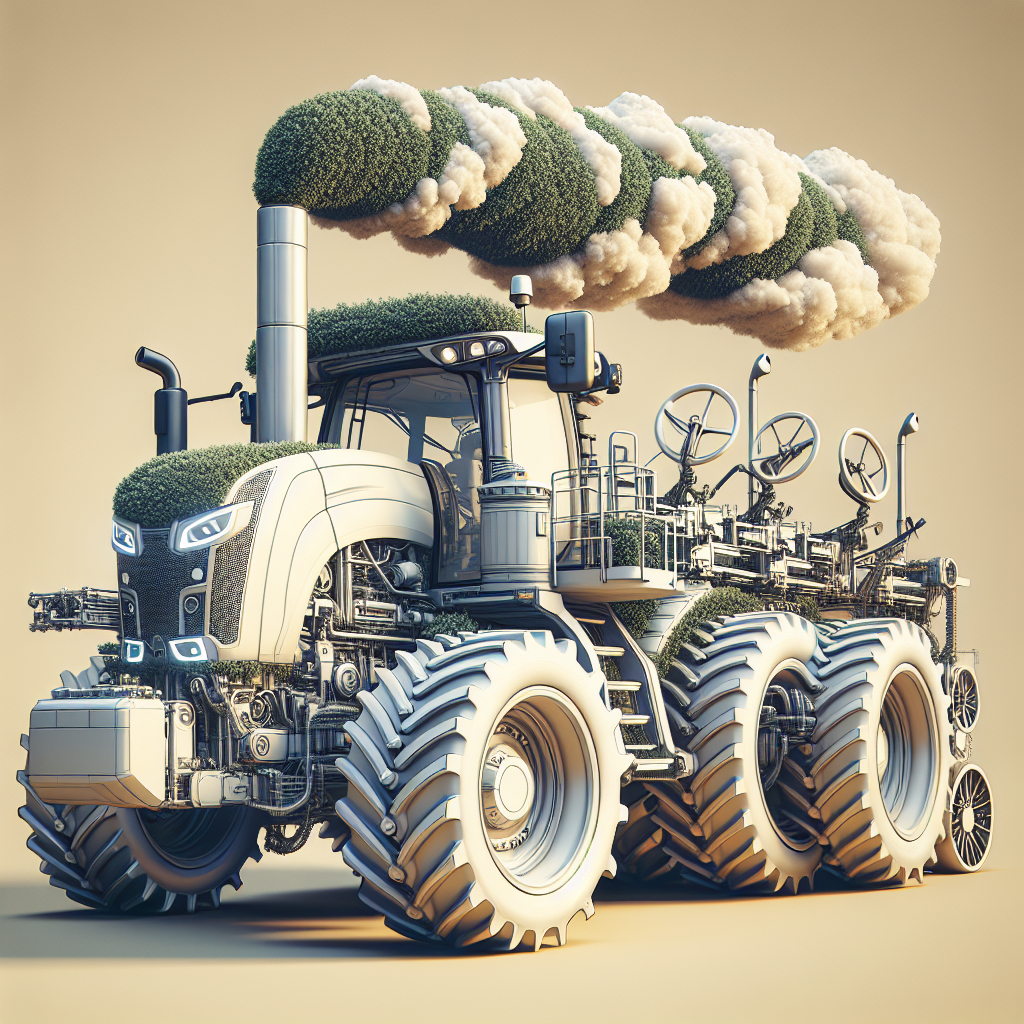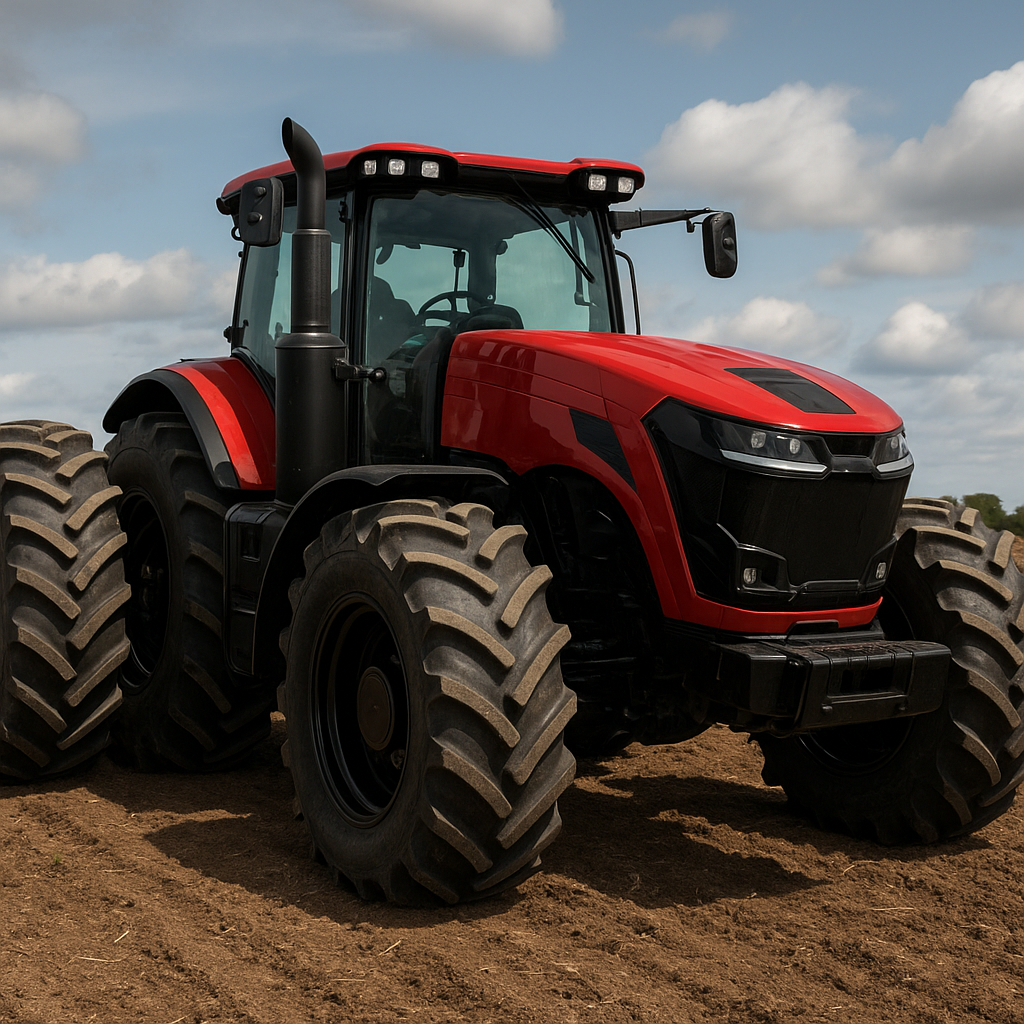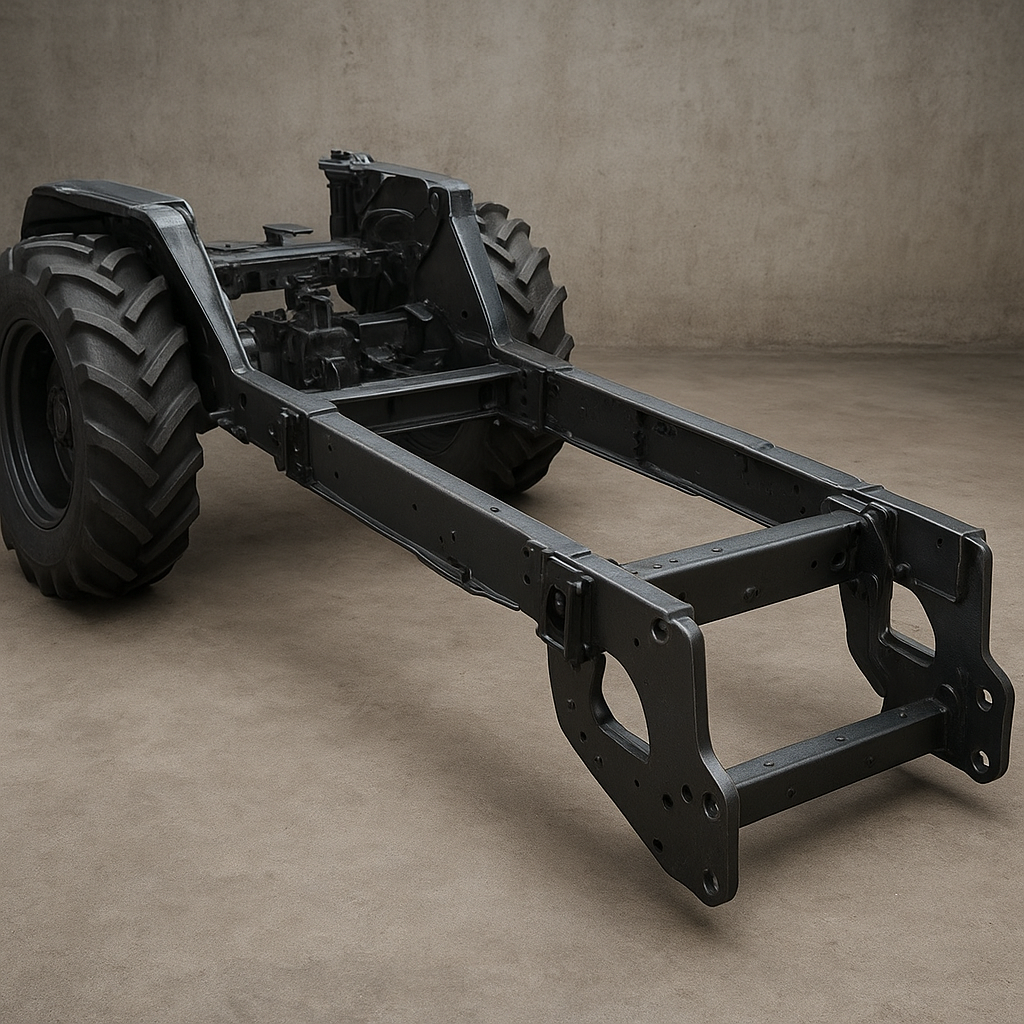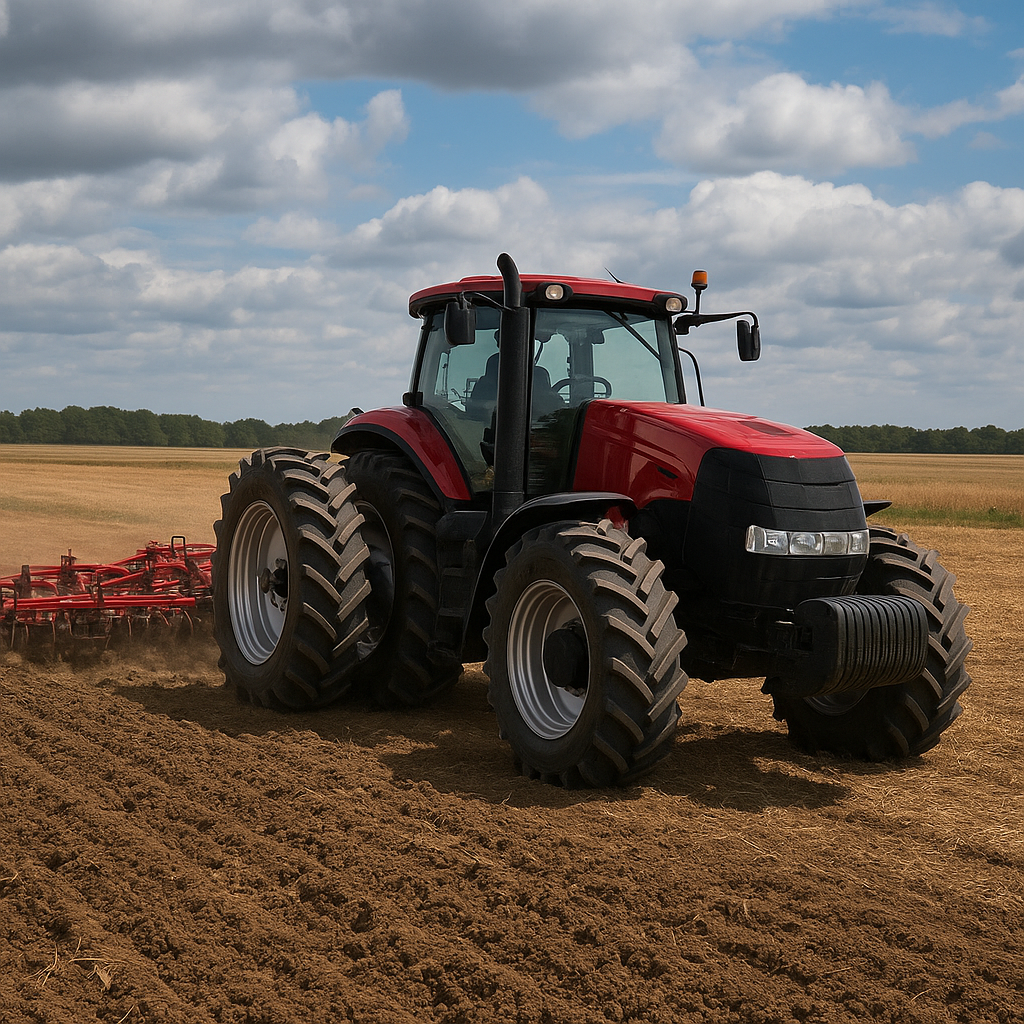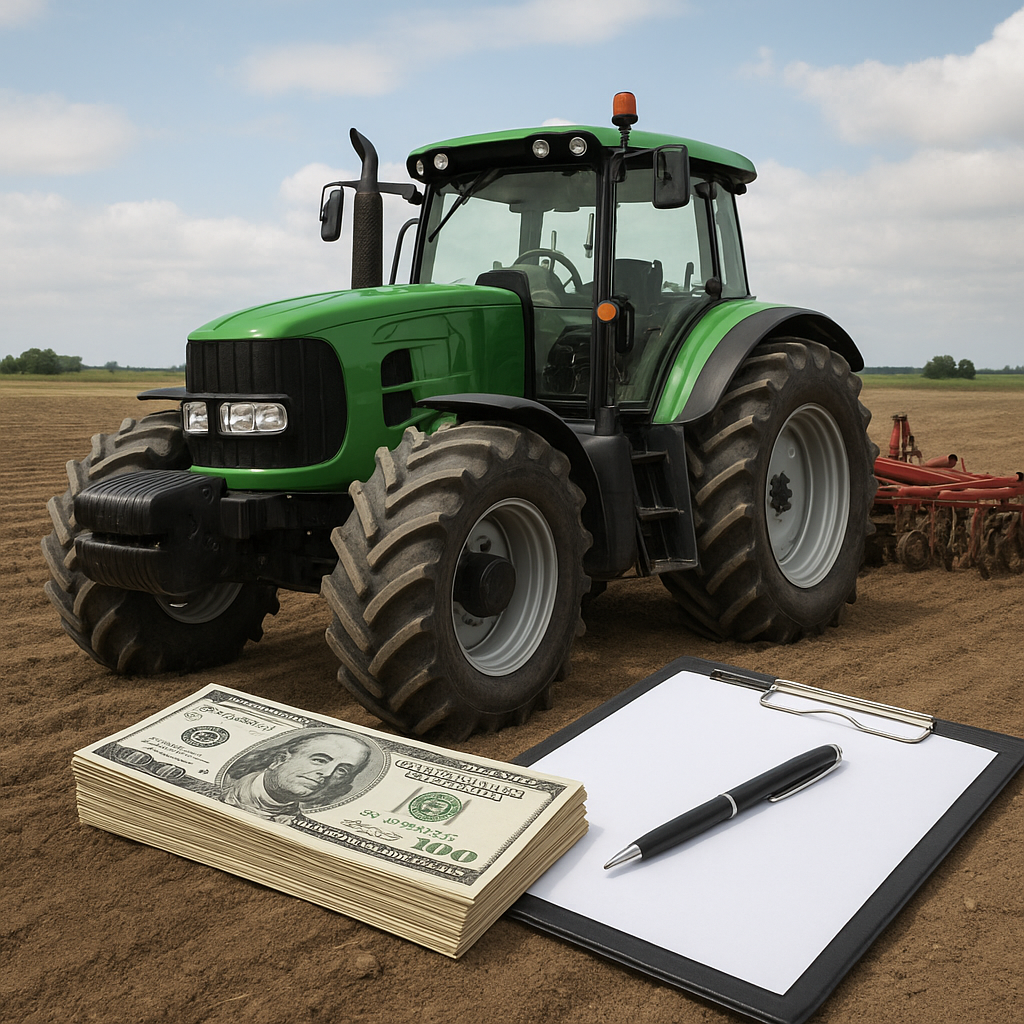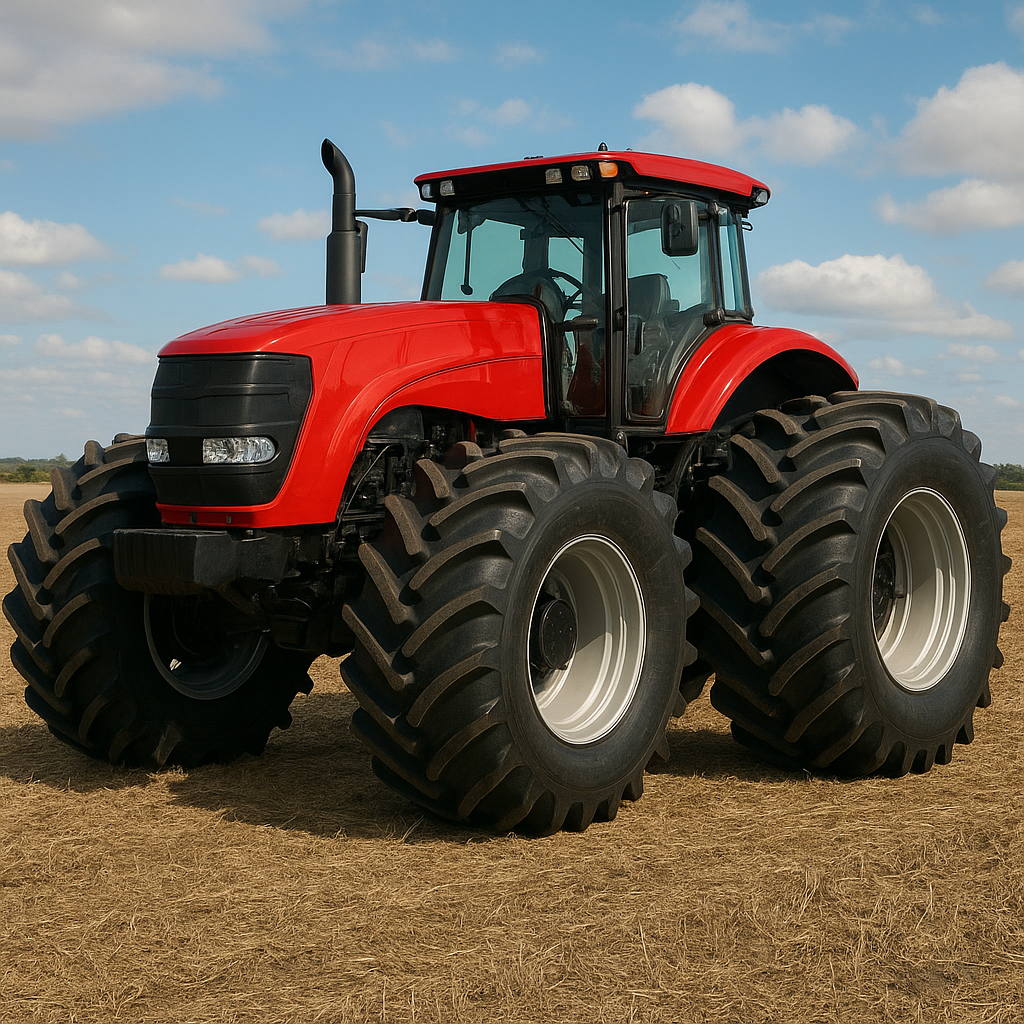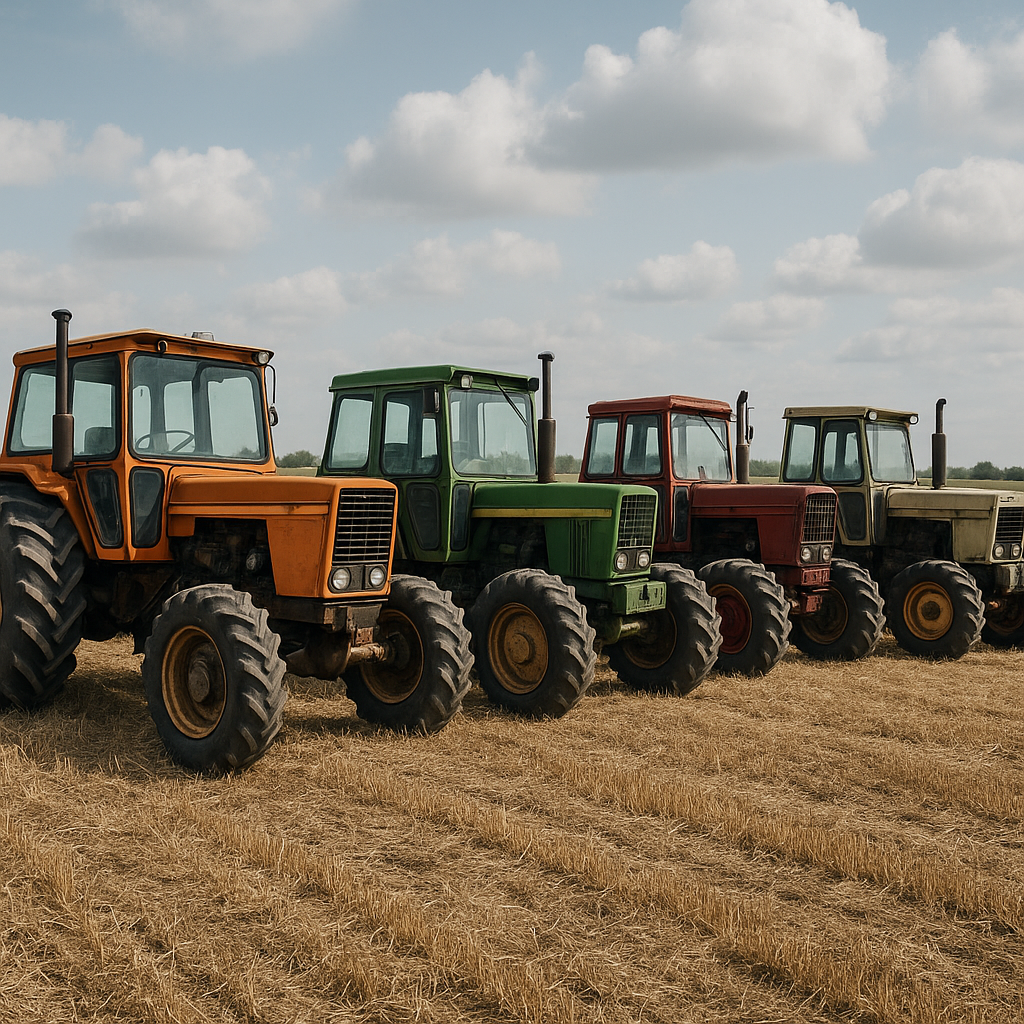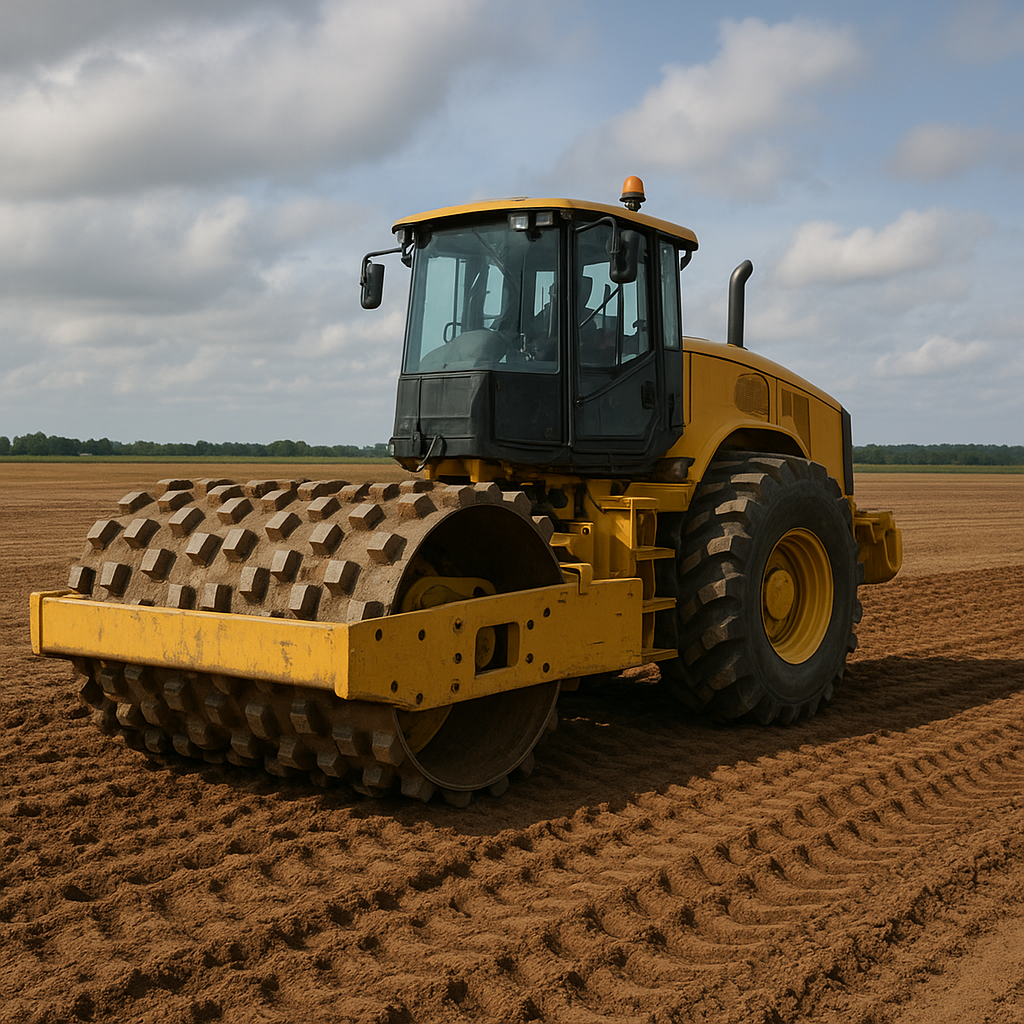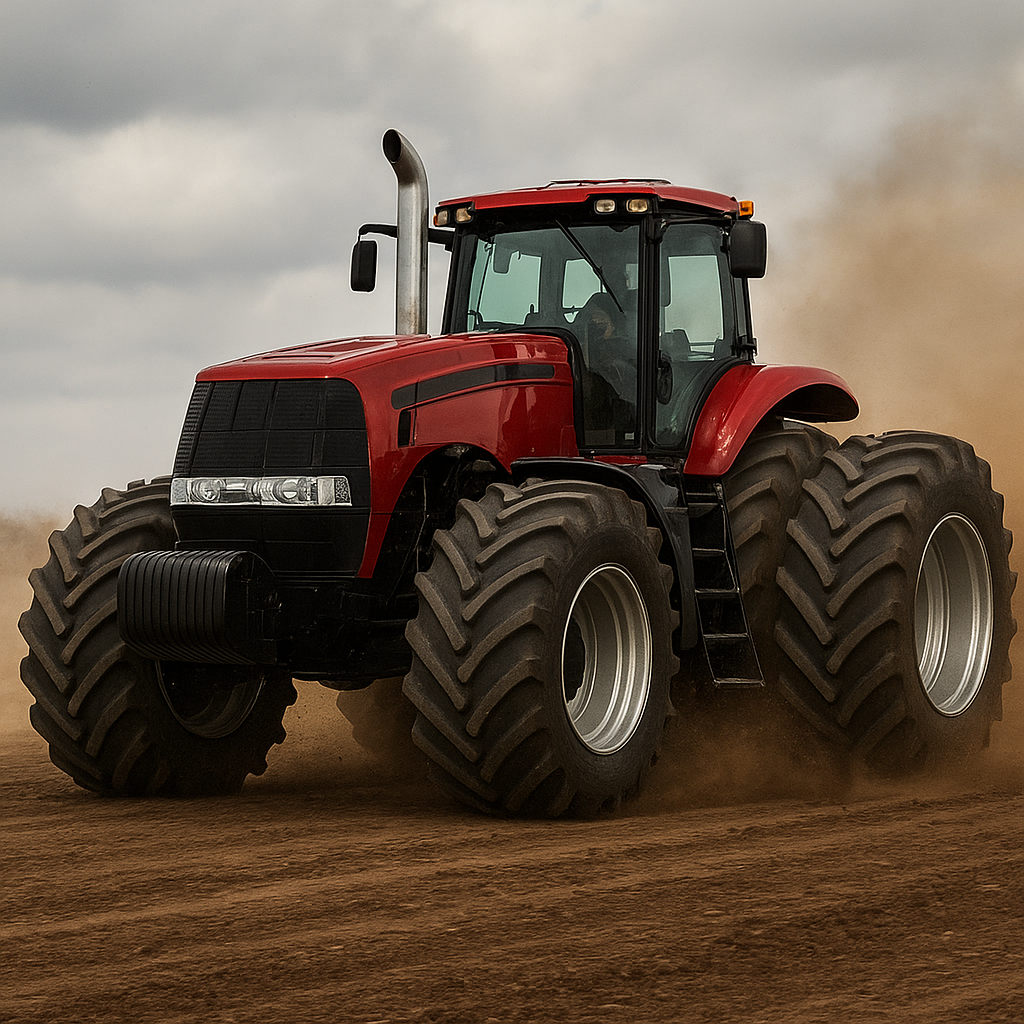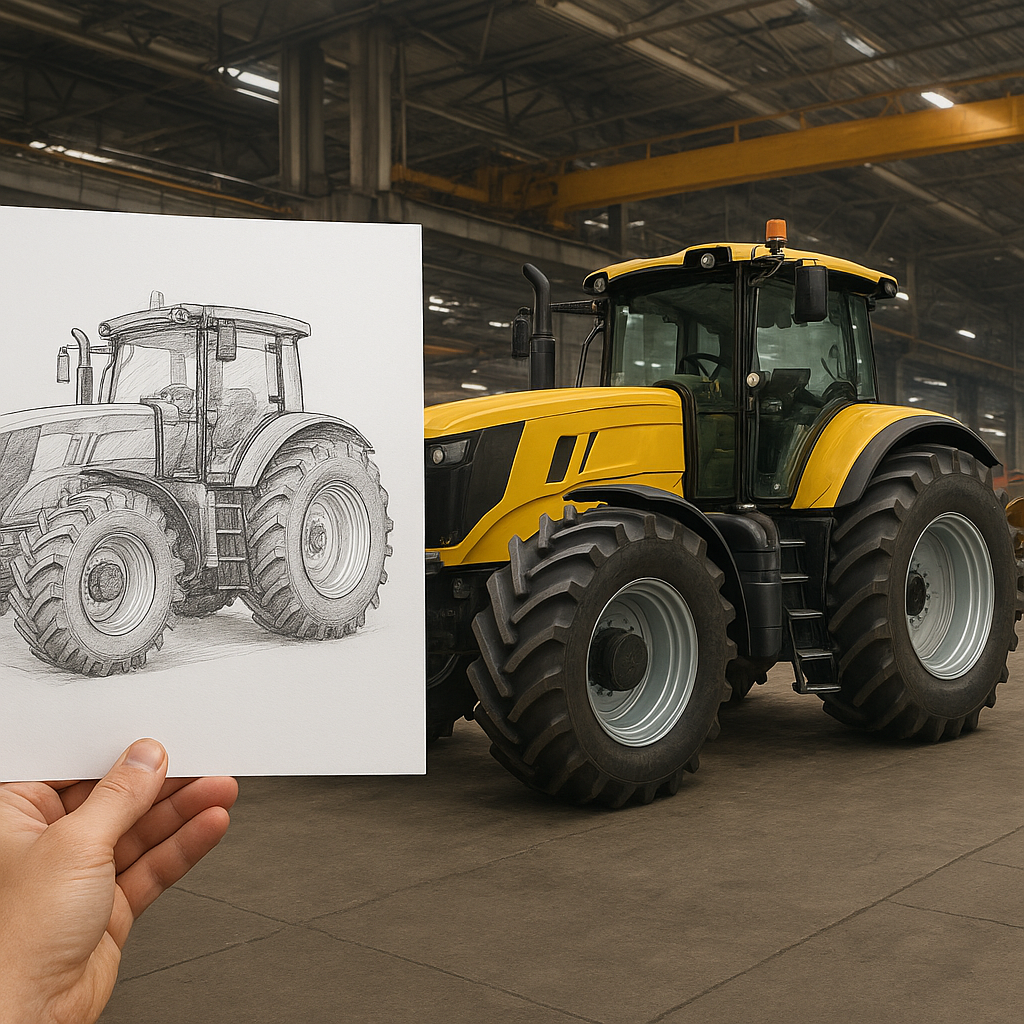As the world increasingly focuses on sustainability and environmental responsibility, the agricultural sector is also evolving to meet these demands. One of the most significant advancements in this area is the development of sustainable tractors. These eco-friendly machines are designed to reduce the carbon footprint of farming operations while maintaining or even enhancing productivity. This article delves into the various aspects of sustainable tractors, exploring their benefits, technologies, and the future of eco-friendly farming equipment.
The Evolution of Sustainable Tractors
The journey towards sustainable tractors began with the recognition of the environmental impact of traditional farming equipment. Conventional tractors, which run on diesel or gasoline, contribute significantly to greenhouse gas emissions. As awareness of climate change and environmental degradation grew, the agricultural industry started to seek alternatives that could mitigate these effects.
Early efforts focused on improving the fuel efficiency of tractors and reducing emissions through better engine designs and cleaner fuels. However, these incremental improvements were not enough to meet the growing demand for sustainability. This led to the exploration of more radical innovations, such as electric and hybrid tractors, as well as the use of alternative fuels like biodiesel and hydrogen.
Electric Tractors
Electric tractors are one of the most promising developments in sustainable farming. These machines are powered by batteries, which can be charged using renewable energy sources such as solar or wind power. Electric tractors produce zero emissions during operation, making them an excellent choice for reducing the carbon footprint of farming activities.
One of the key advantages of electric tractors is their lower operating costs. Electricity is generally cheaper than diesel or gasoline, and electric motors require less maintenance than internal combustion engines. Additionally, electric tractors are quieter, reducing noise pollution and creating a more pleasant working environment for farmers.
However, there are still challenges to overcome before electric tractors can become mainstream. The most significant hurdle is the limited battery life and the time required for recharging. Advances in battery technology, such as the development of more efficient and longer-lasting batteries, are crucial for the widespread adoption of electric tractors.
Hybrid Tractors
Hybrid tractors combine the benefits of electric and traditional internal combustion engines. These machines use a combination of battery power and diesel or gasoline to optimize fuel efficiency and reduce emissions. Hybrid tractors can switch between power sources depending on the task at hand, making them versatile and adaptable to various farming conditions.
One of the main advantages of hybrid tractors is their extended range compared to fully electric models. The internal combustion engine can take over when the battery is depleted, allowing the tractor to continue operating without interruption. This makes hybrid tractors a more practical option for large-scale farming operations where long hours of continuous use are required.
Despite their benefits, hybrid tractors are still relatively new to the market, and their higher initial cost can be a barrier for some farmers. However, as technology advances and economies of scale come into play, the cost of hybrid tractors is expected to decrease, making them more accessible to a broader range of farmers.
Alternative Fuels for Tractors
In addition to electric and hybrid tractors, the use of alternative fuels is another avenue for achieving sustainability in farming. Biodiesel, hydrogen, and even methane are being explored as potential replacements for traditional diesel and gasoline.
Biodiesel
Biodiesel is a renewable fuel made from vegetable oils, animal fats, or recycled cooking oil. It can be used in existing diesel engines with little or no modification, making it an attractive option for farmers looking to reduce their carbon footprint without investing in new equipment.
Biodiesel produces fewer emissions than traditional diesel, including lower levels of carbon dioxide, particulate matter, and sulfur oxides. Additionally, biodiesel is biodegradable and non-toxic, reducing the risk of environmental contamination in the event of a spill.
However, the production of biodiesel requires significant amounts of feedstock, which can compete with food production and lead to higher prices for crops. Sustainable sourcing of feedstock and advances in biodiesel production technology are essential to address these challenges and make biodiesel a viable long-term solution for sustainable farming.
Hydrogen
Hydrogen is another promising alternative fuel for tractors. Hydrogen fuel cells generate electricity through a chemical reaction between hydrogen and oxygen, producing only water and heat as byproducts. This makes hydrogen-powered tractors virtually emission-free.
One of the main advantages of hydrogen fuel cells is their high energy density, which allows for longer operating times compared to batteries. Additionally, refueling a hydrogen tank is much faster than recharging a battery, making hydrogen tractors more practical for continuous use.
However, the production, storage, and distribution of hydrogen present significant challenges. Hydrogen is currently produced primarily from natural gas, which is not a renewable resource. Developing sustainable methods of hydrogen production, such as electrolysis using renewable energy, is crucial for the widespread adoption of hydrogen-powered tractors.
Methane
Methane, a potent greenhouse gas, can be captured from agricultural waste and used as a fuel for tractors. This not only reduces methane emissions but also provides a renewable source of energy for farming operations.
Tractors powered by methane can use existing internal combustion engines with some modifications, making it a relatively low-cost option for farmers. Additionally, using methane as a fuel can help close the loop in agricultural systems, turning waste into a valuable resource.
However, the infrastructure for capturing, storing, and distributing methane is still in its early stages. Investments in technology and infrastructure are needed to make methane a viable and sustainable fuel option for tractors.
The Future of Sustainable Tractors
The future of sustainable tractors looks promising, with ongoing advancements in technology and increasing awareness of the importance of sustainability in agriculture. As electric, hybrid, and alternative fuel tractors become more accessible and affordable, more farmers are likely to adopt these eco-friendly options.
In addition to technological advancements, policy support and incentives will play a crucial role in promoting the adoption of sustainable tractors. Governments and organizations can encourage farmers to invest in eco-friendly equipment through subsidies, tax breaks, and grants. Education and training programs can also help farmers understand the benefits of sustainable tractors and how to integrate them into their operations effectively.
Collaboration between manufacturers, researchers, and farmers is essential to drive innovation and address the challenges associated with sustainable tractors. By working together, stakeholders can develop solutions that meet the needs of modern farmers while minimizing the environmental impact of agriculture.
Smart Farming and Sustainable Tractors
The integration of smart farming technologies with sustainable tractors is another exciting development. Precision agriculture, which uses data and technology to optimize farming practices, can enhance the efficiency and effectiveness of sustainable tractors.
For example, GPS and sensor technologies can help farmers monitor and manage their fields more accurately, reducing the need for excessive fuel consumption and minimizing environmental impact. Autonomous tractors, which can operate without human intervention, can further improve efficiency and reduce labor costs.
By combining sustainable tractors with smart farming technologies, farmers can achieve higher productivity while reducing their carbon footprint. This holistic approach to sustainable agriculture can help meet the growing demand for food while preserving the environment for future generations.
Conclusion
Sustainable tractors represent a significant step forward in the quest for eco-friendly farming. Electric, hybrid, and alternative fuel tractors offer viable solutions for reducing the environmental impact of agriculture while maintaining productivity. As technology continues to advance and more farmers adopt these innovations, the future of sustainable farming looks bright.
By embracing sustainable tractors and integrating them with smart farming technologies, the agricultural sector can play a crucial role in addressing climate change and promoting environmental stewardship. With the right support and collaboration, sustainable tractors can help create a more sustainable and resilient food system for the future.
